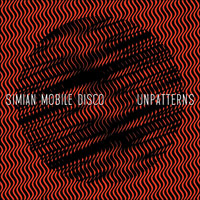
Vows
Warner Bros.
If indie labels are the new majors, one must assume major labels have now been usurped by even more almighty power structures, operating in cahoots with organizations that go as far into the Earth’s crust as you can fathom. These projectionists are so skilled at crafting reality, you might think the words you are reading are actually real and possibly that I am really fucking crazy. Still, imagine what they are manufacturing beyond a thousand Linda Perry clones on steroids: the synthetic opiate of the masses, popular music. It is for this reason that when questions of authenticity are raised by dubious journalists, albeit cast from a reactionary embrace, the answer seems obvious. Of course, they wrote this music—it is horrible. Unfortunately, with Kimbra’s Vows, released on Warner Bros, nothing is that tidy.
Although Kimbra could be read as CocoRosie with a benefactor and good parenting, we are not dealing with the kind of Svengali-manipulated pop star of the past. Vows is 100% quirk, coming from a voice so young that there can be no anxiety of influence. Kimbra was born in 1990, and while Vows’ referents can be deftly placed by any music journalist-as-anthropologist, they were offered to her on a unilateral platter of space and time, a platter no doubt real to her. Post-internet pop is here, with Kimbra’s unique cocktail being vocal jazz, neo-soul, ’90s R&B, big band, and swing revival.
Vows starts off with Kimbra spitting a skillful new wave Bobby McFerrin interpretation on “Settle Down.” But while “Don’t Worry, Be Happy” was somehow never construed as sardonic, “Settle Down” is a confused statement. Kimbra dead-pans how she wants to “settle down... raise a child,” and if this is meant to be a statement of sorts, it is not an issue for this girl’s target demographic but a gross affront to her assumedly riot grrrl babysitters. What this song does is provide a case example of Kimbra’s unarguable talents at vocal styling, which she continues to flaunt throughout the album. But what money and an instant musical history will not buy you is the grace and intuition as to when to use this gift. An effective pop star will till the groundwork, so when it is time to dig, it goes all the way in. There is no self-control on Vows and no sense of self.
It is hard to contextualize music like Kimbra’s today because it is unclear for whom exactly it is made. The demarcations that used to exist and separated the underground from the mainstream are fading; serious music journalism is deep in the aforementioned pop embrace and mainstream music outlets are allowing ever more potent incremental doses of eccentricity on the airwaves. This is a good problem, especially for Kimbra who is “not aiming just to be a mainstream, middle-of-the-road pop artist,” whatever that means. All aesthetic judgements aside, Kimbra is going to be huge. How could she not be?
Elizabeth Murphy

Cancer4Cure
Fat Possum
Jaime Meline, a.k.a. El-P, took five years to make Cancer4Cure. He spent much of that time mourning the death of his close friend Camu Tao, dissolving his record label, Definitive Jux, and coming to terms with his demons as he looked into an unpredictable future. Lucky for us, he somehow managed to put all that pain down on wax and emerge rough and ready to take on all comers.
For 21st century hip-hop production, especially of the post-apocalyptic variety, El-P simply has no peers. Kanye is the only one who can touch him, but that’s apples and oranges. Meline’s beats are so detailed, so dynamic, and so deep (like a Radiohead record), they’ll make your giant, $300 studio headphones worth the money. You can listen to this album, not even pay attention the words, and still come away amazed. Case in point: “Tougher Colder.” It’s marked by a thick, plodding synth line during the opening verse, and the layers in the chorus only make it harder. But then the drums drop out for a little monologue from Killer Mike, and when the beat returns, El-P rips it open, shredding the synths and inserting old-school horn hits on the off-beats. The combination of his Def Jux futurist–style with those old-school stabs creates a controlled chaos that elevates the guest verses from Killer Mike and Despot to a new level of aggro. The first time I heard it, my jaw dropped like a dumbbell, and I hit rewind about 37 times in a row. And that’s just one song out of a baker’s dozen.
As for the words, bring a dictionary ’cause El Producto’s like David Foster Wallace with a rap degree. He’s clearly just as fussy about his lyrics as he is about his drum tones, and he packs every line with as many images as the syllables can bear, blazing through your brain with multiple internal rhymes and allusions that get dense like cockney slang. Sensitive souls might want to take this in doses. The album ends with glorious catharsis, but the album-long path is laden with Meline’s dystopian worldview, overflowing with wild verses of intimidation, threats, paranoia and visions of torture and war. Rest assured, though, El-P eventually brings it around to a soul-fortifying conclusion, and in the album’s most fiery moments (e.g. “Regust Denied”), the album will have you marching off the couch to occupy anything that gets in your way.
Matt Slaybaugh

Clear Moon
PW Elverum and Sun
Since eschewing the Microphones moniker for Mount Eerie earlier this century, the music Phil Elverum has been making has grown increasingly insular. Not that what he created before the name change wasn’t plenty esoteric, but each subsequent record has seemingly uncovered a new subtle wrinkle to explore. Though we instinctually classify Elverum as making “pop” or “rock” music, such labels seem to hold little use in describing what exactly Mount Eerie is.
Not that other words are that much more useful. “Through the Trees Pt. 2,” which begins the record, starts as a barebones reverie—a simply strummed guitar augmented only by the knocks of a foot tapping—but it eventually reveals other sonic touches (keys, drums, etc.) and a modernist outlook that such seeming simplicity belies. Elverum sings of mountains and rivers, but also the internet and driving, so it’s hard to pin him down as an anachronistic folkie. The rest of the record is equally filled with sonic slight-of-hand. “The Place I Live” is grayish in tone at first glance, but the more one listens, a greater variety of hues is soon revealed, especially once Elverum’s collaborators enter vocally. “House Shape” is comprised of electronic beats and synths, but it too has to be studied for the differences in timbre to be discerned. There’s nothing obvious here, but in a world becoming increasingly high-contrast, it is oddly soothing and appealing.
Stephen Slaybaugh

Urban Turban: The Singhles Club
Ample Play
Cornershop was always a more interesting beast than their status as a one-hit wonder would let on. While there’s no denying that nothing in their catalog before or since has matched the world-conquering 1997 single “Brimful of Asha” or its accompanying Fatboy Slim remix, the band was more than just another group chasing the charts. Indeed, the band’s blend of Indian influences, Brit-pop, and electronic dance music put them in a unique place. Lead by Tjinder Singh, they were both musical and cultural outsiders who could still inhabit the same spaces as their contemporaries. It was a bit of a high wire act, but if nothing else, they showed that there was more to the Brit-pop movement than just white guys with guitars. But all things must eventually end, and when their 2002 follow-up, Handcream for a Generation, failed to recapture that moment, Cornershop quietly went on hiatus.
However, they just as quietly returned in 2009 with the well-reviewed Judy Sucks a Lemon for Breakfast. After another record last year, they’ve released Urban Turban: The Singhles Club. As could be gathered from the title, the album is a collection of singles the band had previously released through their website. So Urban Turban is less a “new” record and more of a “new to you” record. It’s also not quite a proper Cornershop album. In fact, Singh’s vocals only appear on one track (“What Did the Hippie Have in His Bag?”), two if you count the remix of the song. In his place is a roster of guest vocalists. Musically, however, the band is as recognizably Cornershop as ever. The album only goes off the rails with “Milking It,” which is essentially nothing more than a lengthy shout out. But it’s a minor dip in a pretty solid showing. If you’re hungry for straight Cornershop, you’ll probably leave a little unsatiated. But as an appetizer, the record hits the spot.
Dorian S. Ham

Unpatterns
Wichita
James Ford and Jas Shaw began making electronic music under the banner of Simian Mobile Disco roughly seven years ago. Though the moniker is not exactly a household name, you may have heard any one of their multitude of remixes (spanning from Björk to Muse), or even their previous studio album, Temporary Pleasure, which featured the likes of The Gossip’s Beth Ditto and Chris Keating (of Yeasayer). So while the London-based duo has been previously defined by the people with whom they’ve collaborated, this time they are aiming to reinvent themselves.
SMD’s latest release, Unpatterns, is a pared-down, dark approach to electronic music. It begins with the forlorn, spacey plea of “I Waited For You,” and continues down a rabbit hole of eclectic beats and synths. “Cerulean,” a synthetic wall of sound, is followed by “Seraphim,” whose haunting vocals at times recall Moby’s Play, and the relentlessly shrill “Interference.” The short tracks of previous albums have been replaced by extended cuts geared toward a gritty basement dancehall. SMD is known and respected for its analog recording, which in this setting gives its music a rich texture.
Admittedly, one will probably have to have an appreciation for electronic music to freak out over this album, as it’s not exactly the easiest listening or the most subtle. In fact, many songs are downright jarring at times. Yet Unpatterns is certainly transfixing, albeit in a sinister kind of way. Enter the void at your own risk.
Jennifer Farmer
MP3: “Seraphim”
ALBUM REVIEWS
The Cribs, In the Belly of the Brazen Bull
Garbage, Not Your Kind of People
Swans, We Rose from Your Bed with the Sun in Our Head
Avengers Assemble: Music from and Inspired by the Motion Picture
Fela Kuti, Live in Detroit, 1986
Cheap Time, Wallpaper Music
Damon Albarn, Dr Dee
Here We Go Magic, A Different Ship
Royal Headache, Royal Headache
Santigold, Master of My Make-Believe
Death Grips, The Money Store
Brian Jonestown Massacre, Aufheben
Little Hurricane, Homewrecker
Ty Segall and White Fence, Hair
